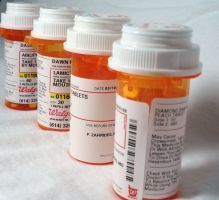
I admire Newsweek writer Sharon Begley’s work … especially when she explains ways we can try to rewire our brain. But I found last week’s cover story irresponsible. If, for no other reason, than its title and subtitle: “The Depressing News About Antidepressants: Studies Suggest That the Popular Drugs Are No More Effective Than a Placebo. In Fact, They May Be Worse.”
Then I may as well kill myself.
That’s how I would have read the article four years ago, before I started questioning all the information available today on mood disorders and drug treatment, before I started working with a physician from Johns Hopkins who could help me tease out the hope from articles like this, so I wasn’t tempted to take my life upon reading there was no way out of the darkness.
In fact, on the way to my consultation at the Johns Hopkins Mood Disorders Clinic, I read a similar article in O magazine: a compilation of interviews with folks about how antidepressants zap creativity, dull emotions, destroy creativity, flatten libidos, and a list of other things. Shaking with anxiety and tears coming down my face, I almost told Eric to turn around, that I was foolish to think that there was hope for me, that I was a lost case, and that, if the article was right, I would only be making matters worse.
Thank God I threw the article into the backseat and went on with my consultation.
I don’t know why the main body of research behind the article is so surprising: antidepressants work better for those with severe depression than for those who suffer from mild to moderate depression. Can’t we say that as part of the subtitle, to help out the folks who are banking on medical intervention to lighten their crushing and burdensome load?
I’ve always maintained that if a person has mild to moderate depression, then he should start with his diet, sleep, exercise. Try yoga or some acupuncture sessions. In many cases, that’s enough!
For folks like me, though, who are/were hanging on to life by a very thin and fraying thread, antidepressants can save lives. They have certainly given me back my life. I know that. Because I tried absolutely everything else I could to make the death thoughts go away, and they continued to stalk me until I found the right medication combination. Now, instead of putting 95 percent of my energy into NOT taking my life, I can invest it into helping others not take their own lives and to giving back. Which is why I think magazines like Newsweek, with so much power over the information we process, should be more careful than to say: Sorry folks, for those of you so desperate, well, you may as well give up and take a gun to your head.
John Grohol of Psychcentral always provides a number of insights to media stories with unfortunate sticking power. In a recent post, “Are Antidepressants Really That Ineffective?” he writes:
Newsweek’s Sharon Begley has a lengthy article discussing the growing body of evidence that calls into question decades’ worth of prescriptions. It seems to be journalists’ favorite “go to” story now in mental health, because there’s a black-and-white controversy — do antidepressants work or don’t they?
People mistakenly believe that one type of research is somehow superior to another form of research. However, data is data and research is research. All things being equal, if it’s done in as objective a manner a human being can do it, then it’s all good and informative. A study conducted 20 years ago is just as valid today, as long as the design of the study was solid and unbiased. And a single-case experimental design, while not very generalizable, can still lead — and has led — to valuable insights into human behavior.
So I get a little concerned when we do give more weight to the most recent study, or the most recent meta-analysis. They have their place, but their place is in context — understanding the body of research as a whole. (Because meta-analyses never take into account the entire body of research on a drug or topic — they always have inclusion and exclusion criteria, criteria that can directly impact the results they find.)
To see another article about this issue go ’round and ’round the bend with both sides, but not really bringing anything new to the discussion, is a little frustrating. I think it’s pretty obvious that if a drug was supposed to help people, but didn’t, people would stop taking it and doctors would eventually stop prescribing it. Since it’s unethical to prescribe placebos to patients outside of a research study, what choice do doctors and patients have — the drug works. (Well, not always, of course, but in many people who take it, and who keep trying a different antidepressant if the first one doesn’t work, according to the results of the STAR*D study.)
In other words, can we please get back to a forest view of mood disorders so that, while we’re busy analyzing the lady bug on the bark of a tree, we don’t miss the guy with one leg off the bridge? Antidepressants aren’t fool proof. Unfortunately. Sometimes you have to try a few before you feel relief, and for some people (especially those who suffer from mild to moderate depression, that can benefit more from other kinds of therapies), SSRIs might not work at all.
But let me say this loud and clear: There is hope. Depression is treatable. It is, as William Sytron wrote in his classic, “Darkness Visible,” “conquerable.” And much of that has to do with the drugs that are available today.
* Click here to subscribe to Beyond Blue and click here to follow Therese on Twitter and click here to join Group Beyond Blue, a depression support group. Now stop clicking.

